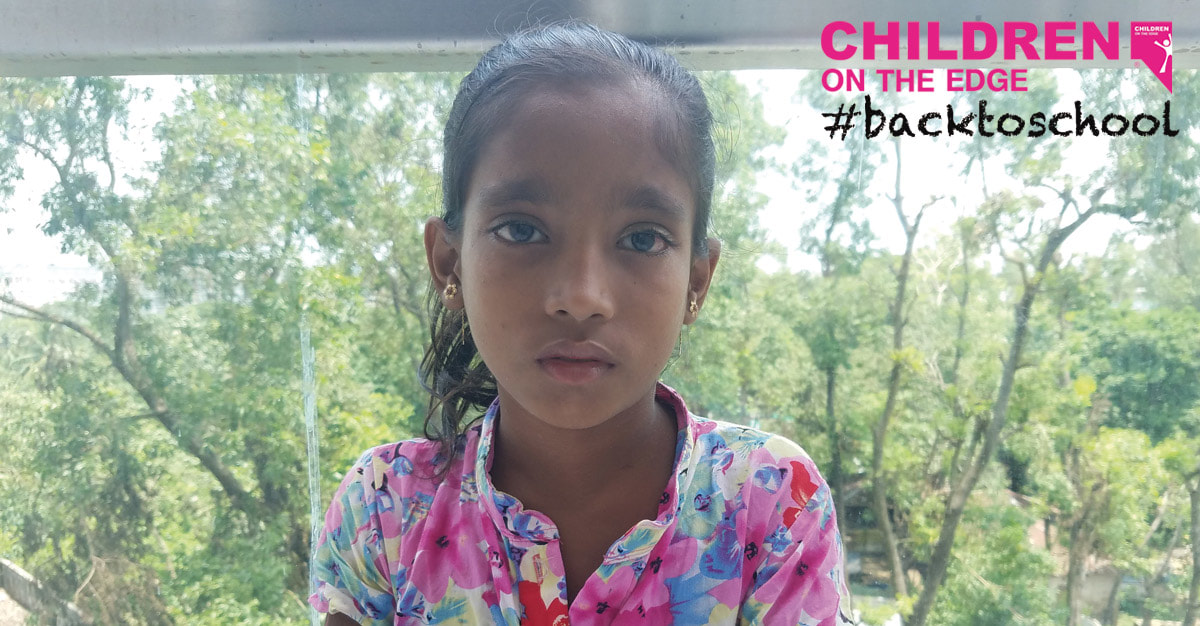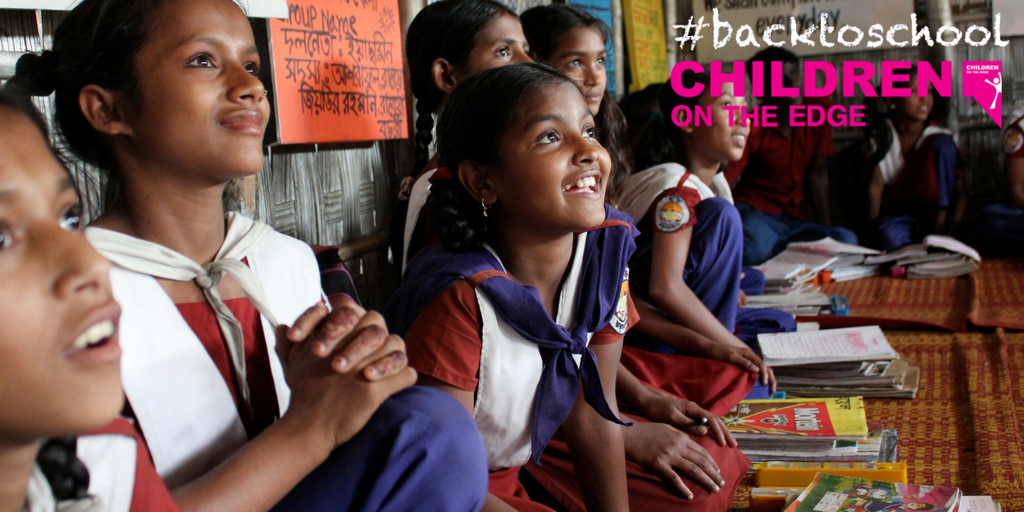|
“I don’t remember what life was like before coming to the camp”, says Azima, “but my friends tell me we would play and go swimming”. Azima is nine years old and lives in a Rohingya makeshift refugee camp on the Bangladesh-Myanmar border. Her mother told us about when they fled Myanmar due to the persecution of the Rohingya, saying “After the riots and looting started we were scared. When the violence came to our village we fled with only what we could carry. We walked one day to the water. Then took a boat to Bangladesh. Then we walked one more day”. Azima is one of six children, her father has been missing for over two years after leaving to find work on a fishing boat. Her mother weaves fishing nets to try and earn enough money to feed the children, but this is a constant struggle. When we talked with the Rohingya community back in 2010, the only thing they requested was education for their children. The official United Nations Kutupalong camp provided such services, but the overspilled makeshift camp, a sprawling mass of mud, stick and plastic shelters, had nothing. Not only this, but authorities would not permit permanent structures or formal schools for unregistered refugees. For a long time, thousands of children wandered the camps, unoccupied and vulnerable. We made education possible in what looked like an impossible environment, by supporting the refugee community to build low-profile schools for their children. These 45 classrooms were built onto existing dwellings and are now educating 2700 children in the makeshift camp. We trained over 40 Rohingya refugees as teachers using a curriculum especially designed for refugee children who have missed out on education. Over the last six years, these 2,700 Rohingya refugee children have received an education, in a safe and nurturing environment. Not only are they following a government approved curriculum and sitting exams, but, after what they have been through, they are developing their confidence and self worth. To reach the most children, one child from each household attends school, and then shares their learning with their siblings, parents and friends. Azima’s mother says “Azima is a very hard worker. That is why we chose her to go to school. She is smart and helpful. She spends many hours teaching her brothers and sisters to read and write. It is very important for the future of my family that my children know more than I do. I never learned to read. Without the schools my children could only weave nets like me. That is not a good life. I hope we can do better”. Azima is doing well, flourishing at the camp school and would love to be a teacher herself one day. In fact a 97% pass rate has recently been recorded, and she and her friends have also learnt skills to communicate with army officers, read vital health leaflets, negotiate better prices at the market and understand about the world by reading newspapers they find in the camp. “I don’t leave the camp because I am afraid of the police” says Azima, “but I love to go to the school. Without it I would have nowhere to go. It’s only hard sometimes when I am hungry, but I love to see my friends. My teachers are good people and they work hard every day. My favourite teacher is my English teacher as he likes to make jokes!” A new wave of violence against the Rohingya in October 2016 resulted in an additional influx of around 70,000 refugees to Bangladesh. It drew the eye of the international community and softened the government's position on unregistered Rohingya. We are optimistic that our education programme will now be recognised by the authorities and facilitated by UNICEF. With children like Azima in Kutupalong makeshift camp receiving the services they should, Children on the Edge can replicate the model to support new Rohingya arrivals, as yet unable to access services. You can help us to help these new arrivals by supporting our ‘Back to School’ campaign. Getting children Back to School
School’s out for summer, but you will have seen plenty of ‘Back to School’ supplies in the shops and online; as children get kitted out for their return in September. But getting ‘Back to School’ for the children we work with around the world is a lot more complicated than just buying pens, uniforms and packed lunch boxes. These children face enormous barriers to getting an education, but through our projects, we make it possible for them to access learning again, in a safe place. We provide education for thousands of children like Azima, living 'on the edge' in refugee camps, slum communities and in some of the most remote parts of the world. Could you make a donation today to help us support more children like Azima? Just £10 can provide exercise books and text books for ten Rohingya refugee children for a year in one of our camp schools in Bangladesh Support usComments are closed.
|
RECEIVE OUR EMAILSBlog Categories
All
Archives
July 2024
|
|
JOIN US ON SOCIAL MEDIA
|
Annual Report | Contact Us | Jobs | Media Centre | Resources | Shop
Accessibility & Policies: Accessibility | Equity, Diversity & Inclusion Policy | Complaints| Privacy Policy | Safeguarding
Accessibility & Policies: Accessibility | Equity, Diversity & Inclusion Policy | Complaints| Privacy Policy | Safeguarding
Children on the Edge, 5 The Victoria, 25 St Pancras, Chichester, West Sussex, PO19 7LT, UK | 01243 538530 | [email protected]




 Give monthly
Give monthly Fundraise for us
Fundraise for us RSS Feed
RSS Feed
